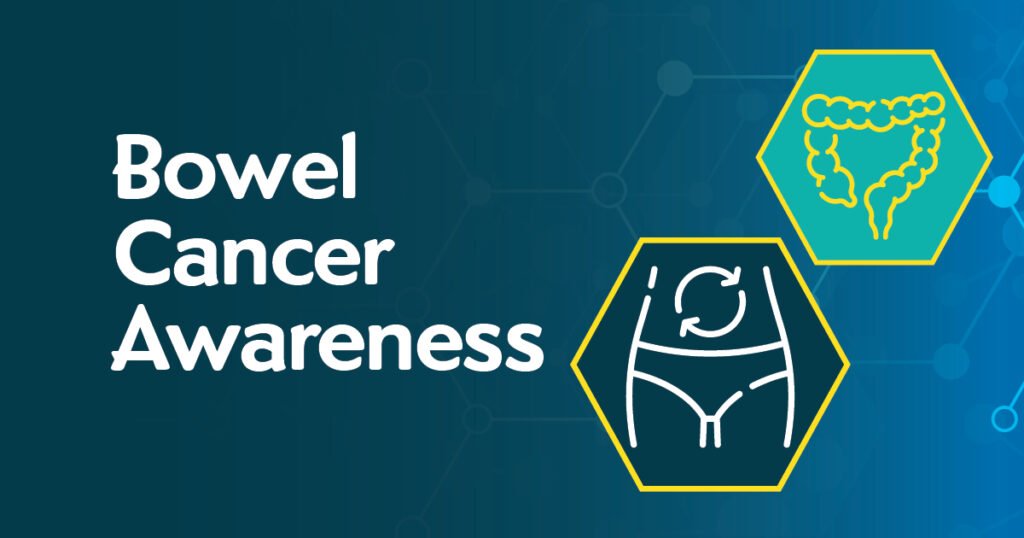Bowel cancer, also known as colon cancer, rectal cancer, or colorectal cancer, is one of the most common types of cancer in the UK. More than 40,000 people are diagnosed with it each year. For Nigerians living in the UK, it’s crucial to be aware of the risk factors, symptoms, and the importance of early detection to improve survival chances.
What is Bowel Cancer?
Bowel cancer begins when cells in the large bowel (colon) or rectum start growing uncontrollably. Most cases (about 70%) begin in the colon, while around 30% develop in the rectum. It usually starts from small, non-cancerous growths called polyps, which can turn cancerous over time. If left untreated, bowel cancer can spread to nearby tissues and lymph nodes, and even to other organs like the liver or lungs.
Risk Factors for Bowel Cancer
While the exact cause of bowel cancer is unknown, several factors can increase the risk, including:
- Age: The risk increases with age, especially after 50.
- Family History: If a close relative (parent, sibling) has had bowel cancer, your risk is higher.
- Inherited Conditions: Conditions like familial adenomatous polyposis (FAP) or Lynch syndrome (hereditary non-polyposis colorectal cancer) can increase your risk.
- Inflammatory Bowel Diseases: Chronic conditions such as Crohn’s disease or ulcerative colitis.
- Previous Bowel Conditions: A history of non-cancerous growths or previous cancers in the bowel.
Other lifestyle factors that can increase your risk include:
- Obesity
- A diet high in red and processed meats and low in fibre
- Lack of physical activity
- Smoking
- Heavy alcohol consumption
- Type 2 diabetes
It’s important to remember that these risk factors don’t guarantee you’ll develop bowel cancer, but they do increase the likelihood. Regular screening can help catch the disease early, even before symptoms appear.
Symptoms of Bowel Cancer
In the early stages, bowel cancer may not show any symptoms. However, as the cancer progresses, the following signs may appear:
- Blood in your stool: This can range from bright red to dark or black blood. It could also appear as blood mixed with the stool or in the toilet bowl.
- Changes in bowel habits: This includes diarrhea, constipation, or feeling that your bowel doesn’t empty completely.
- Unexplained fatigue: Often due to anemia, which results from bleeding in the bowel.
- Abdominal discomfort: Persistent pain or discomfort in your stomach or back passage.
- Unexplained weight loss: Losing weight without trying can be a sign of bowel cancer.
If you notice any of these symptoms, don’t panic—they can also be related to other, less serious conditions like irritable bowel syndrome. However, it’s important to speak to your GP, especially if the symptoms persist.
Diagnosis of Bowel Cancer
If your GP suspects bowel cancer, they will examine you and may recommend some tests, such as:
- Blood tests: To check for signs of anemia or other health issues.
- Stool sample: To check for hidden blood in the stool.
- Colonoscopy: A procedure where a flexible tube is inserted into the bowel to look for abnormal growths and take tissue samples for analysis.
- Sigmoidoscopy: Similar to a colonoscopy but focuses on the lower part of the bowel.
- Virtual Colonoscopy: A CT scan to create a 3D image of your bowel.
If cancer is detected, further tests like CT and MRI scans will be done to determine the size and stage of the cancer and whether it has spread.
Screening for Bowel Cancer
In the UK, regular screening is offered to people between the ages of 50 and 74. The age range may vary slightly depending on your location:
- England: Screening is offered to those aged 60 to 74, with some areas starting at 50.
- Northern Ireland: Screening is offered to those aged 60 to 74.
- Scotland: Screening is available for people aged 50 to 74.
- Wales: Screening is offered for those aged 55 to 74.
The screening test is called the Faecal Immunochemical Test (FIT). This test detects small amounts of blood in your stool, which may indicate bowel cancer. While it doesn’t diagnose cancer, abnormal results lead to further investigations, such as a colonoscopy.
Even if your screening results are clear, it’s essential to stay alert to any symptoms of bowel cancer. Early detection can save lives, and it’s important to attend your screening when invited.
Prevention and Lifestyle Changes
Although you can’t change your age or family history, adopting a healthy lifestyle can lower your risk of bowel cancer:
- Maintain a healthy weight.
- Eat a balanced diet rich in fruits, vegetables, and fibre.
- Limit red and processed meats.
- Stay active and exercise regularly.
- Limit alcohol consumption and quit smoking.
Conclusion
Bowel cancer is a serious but treatable condition, and early detection is key to improving survival rates. If you notice any symptoms or have risk factors, speak to your GP as soon as possible. Regular screening is an important tool for detecting bowel cancer early, so be sure to take advantage of the screening services available to you.
For Nigerians in the UK, staying informed about bowel cancer and screening options can help protect your health and the health of your loved ones. Stay proactive and prioritize your health today!
Join Our WhatsApp Channel
Stay updated on the latest UK news, including education, health, job openings, and more for those living in the UK!
Join here: Naija UK Channel
Also, follow us on our social media channels for the latest updates and discussions:
- Twitter: @NaijaUKConnect
- Facebook: Naija UK Connect
- Instagram: @naijaukconnect




